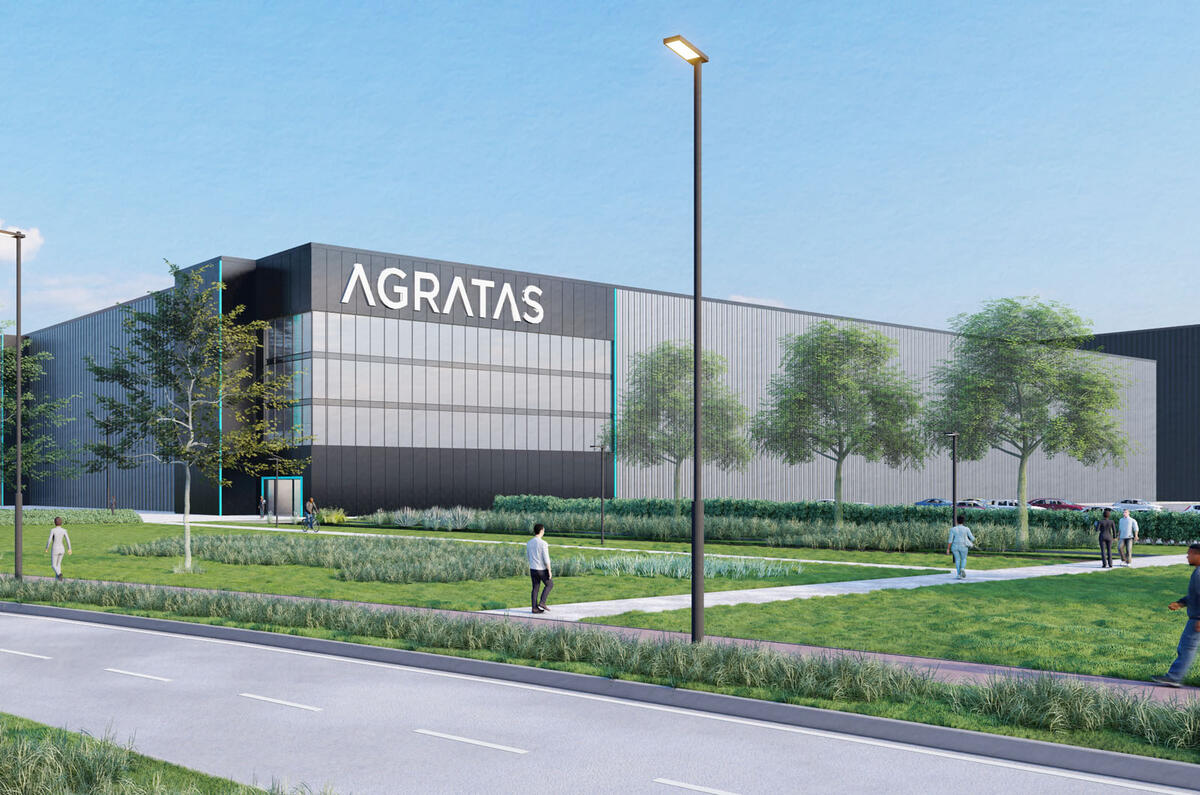Europe’s largest EV battery factory will be located in Bridgwater, Somerset, owner Tata Group has today confirmed, with construction to begin imminently ahead of battery production starting in 2026.
The £4 billion facility, backed by £500m of government funding, will be located at the 620-acre Gravity Smart Campus, the site of a former Royal Ordnance factory that made bombs during World War Two.
The site has been linked to various car and battery manufacturers in the past and was already widely understood to be where Tata would break ground in the coming months.
Tata’s first battery factory outside of its Indian home market will be run by subsidiary Agratas and, with an eventual capacity of 40GWh, will be one of the largest such facilities in Europe.
That capacity alone is just under half of what the UK needs in order to cater to projected local electric vehicle production by 2030.
Autocar understands the site will be known as Agratas South West, but it remains unclear whether that holds any implications for future Agratas facilities in other parts of the country.
The factory, which will create 4000 jobs, will initially make batteries for Tata Motors and JLR (formerly Jaguar Land Rover) – brands that sit under the Tata Group umbrella – before later expanding to produce cells for different applications, such as commercial vehicles, two-wheelers and energy storage solutions.
Tata is looking locally to fill the 4000 jobs needed for its new gigafactory. There will also be thousands more created within the supply chain, it predicts, especially as a host of support businesses and technology companies will need to set up shop nearby.
“We care deeply about the communities we operate in,” said Agratas CEO Tom Flack.
READ MORE: How Tata's £4 billion UK battery factory will reshape Somerset
Tata will also be looking at future-proofing its factory, working with local schools and colleges, as well as the wider Gravity Smart Campus, to offer training courses to get people interested in engineering and train workers.
Cells made at the factory will be in the rectangular prismatic format, rather than the cylindrical shape preferred by BMW and Tesla, and Tata has already said that the cell chemistry can be adapted and changed as new advancements are made.
“Our multi-billion-pound investment will bring state-of-the-art technology to Somerset, helping to supercharge Britain's transition to electric mobility whilst creating thousands of jobs in the process,” said Flack.
Flack’s comments were echoed by Society of Motor Manufacturers and Traders chief Mike Hawes: “Confirmation that Somerset will be home to a new multi-billion-pound EV battery manufacturing facility, with construction starting this spring, is good news for the locality, the industry and wider UK economy.”
“Thousands of new, cutting-edge jobs will be created,” Hawes added, “and as the global sector moves swiftly to electrification, producing batteries in Britain is critical to the next generation of UK automotive manufacturing.”
Tata’s vote of confidence in the UK brings reassurance after a long period of uncertainty around the British industry’s preparedness for the EV era
However, questions still remain over whether the country will be able to build enough batteries to sustain competitive levels of EV production.
The Faraday Institute forecasts that the UK will need 100GWh of capacity by 2030, rising to 200GWh by 2040. But in addition to Tata’s 40GWh Somerset site, only Nissan supplier Envision has concrete plans to ramp up UK battery production, eventually taking its battery factory in Sunderland to an output of 38GWh.
Tata’s Bridgwater site will be the biggest battery factory in Europe. LG is the only firm with plans to eclipse it over time, targeting a 70GWh expansion at its plant in Poland, which supplies packs to Audi, Jaguar, Mercedes-Benz, Porsche, Renault and Volvo.










Join the debate
Add your comment
Wish it and the workers every success, hopefully it'll be followed by another plant further north.
The curse of Brexit strikes again!
Great news, but please note that there is no 'e' in the middle of Bridgwater!